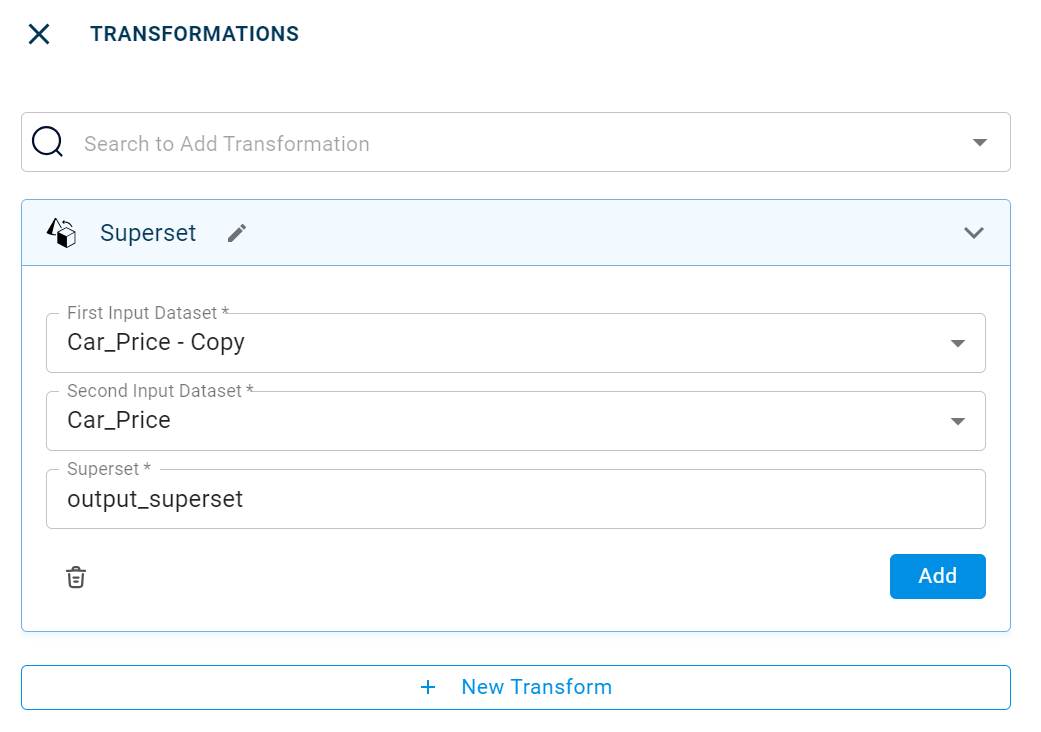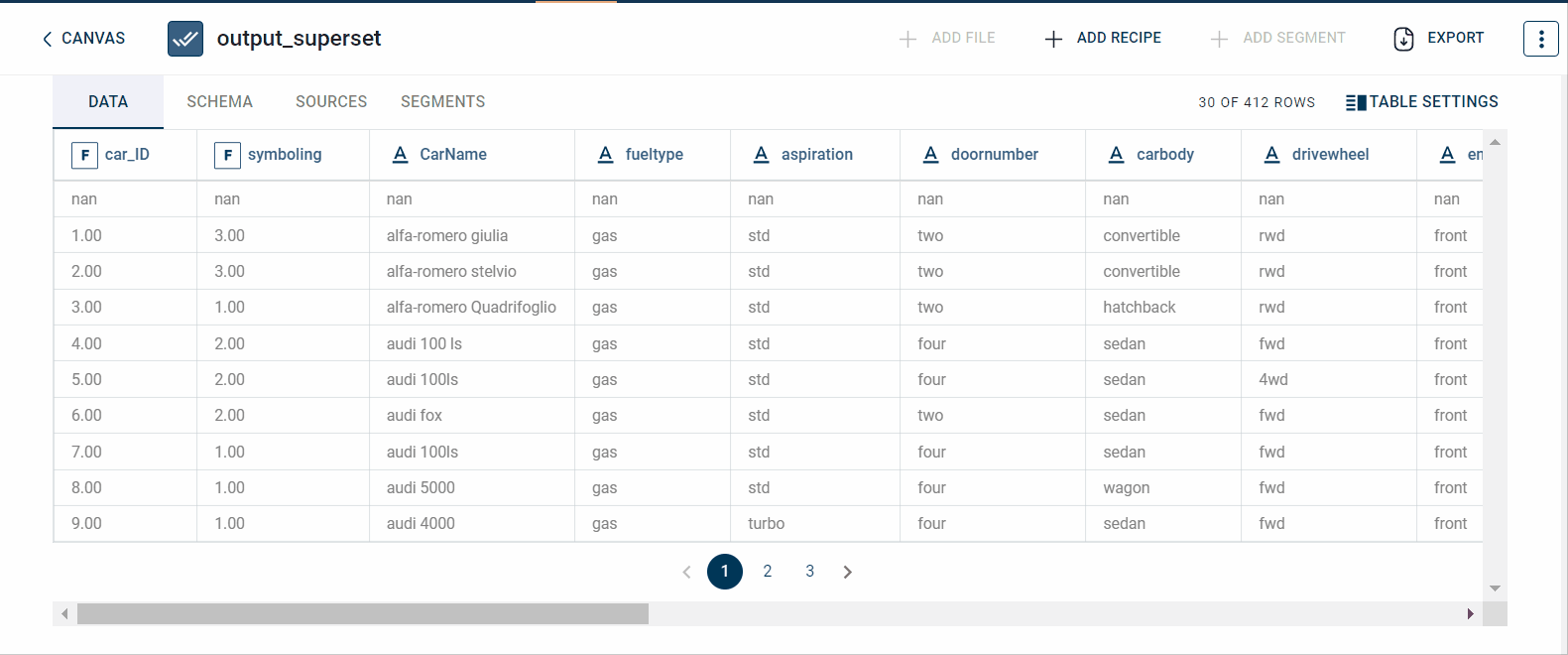Superset
This transform creates a superset for the given two datasets. This checks if all the elements in set B are present in Set A and returns those values.
tags: [“Data Preparation”]
Parameters
The table gives a brief description about each parameter in Superset transform.
- Name:
By default, the transform name is populated. You can also add a custom name for the transform.
- First Input Dataset:
The file name of the first input dataset, which you can select from the drop-down list. (Required: True, Multiple: False)
- Second Input Dataset:
The file name of the second input dataset, which you can select from the drop-down list to run the Superset transform. (Required: True, Multiple: False)
- Superset:
The file name of the output dataset which is the superset of two datasets. (Required: True, Multiple: False)
The sample input for this transform looks as shown in the screenshot:

The output after running the Superset transform on the dataset appears as below:

How to use it in Notebook
The following is the code snippet you must use in the Jupyter Notebook editor to run the Superset transform:
template=TemplateV2.get_template_by('Superset')
recipe_Superset= project.addRecipe([car_data, employee_data, temperature_data, only_numeric], name='Superset')
transform=Transform()
transform.templateId = template.id
transform.name='Superset'
transform.variables = {
'input_dataset':'car',
'input_dataset':'car',
'output_dataset':'superset'}
recipe_Superset.add_transform(transform)
recipe_Superset.run()
Requirements
pandas